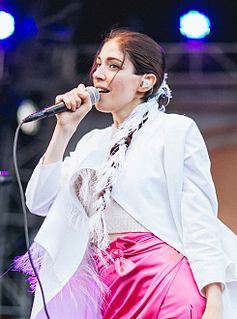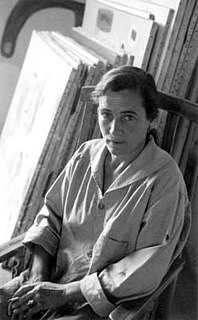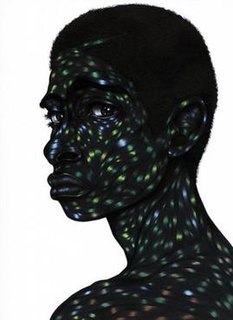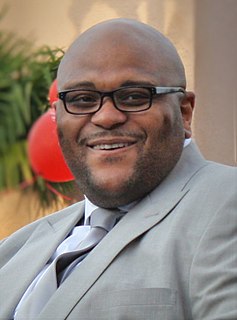A Quote by Margaret Keane
I didn't want people to know that I was an artist. I was ashamed. I thought artists were weird, crazy people, you know. So I always kind of hid the fact that I was an artist.
Related Quotes
I was worried that I, the artist Morimura, would have conflicts with the participating artists and develop a strenuous relationship with them. But the actual experience was completely the opposite. The artists accepted my requests rather positively, because it came from a fellow artist. I strongly feel that the fact that my being an artist avoided the usual curator vs artist tension, and led to creating a positive atmosphere as well as developing a solidarity amongst artists and building a community for artists.
I want to emphasize the fact that we all have the same experience and the same concern, but the artist must know exactly what the experience is. He must pursue the truth relentlessly. Once he sees this fact his feet are on the path. If you want to know the truth you will know it. The manipulation of materials in an artwork is a result of this state of mind. The artist works by awareness of his own state of mind.
I started blogging because I didn't know if I wanted to be an artist. I wanted to talk to other people online who were doing art, so I would post work and ask for feedback. I loved that an artist like James Jean would show his process on his blog. It became this open dialogue that, unfortunately, we don't have a lot in the fine-art world. People will say, "Wow, you share a lot." I'm like, "No, I make it a point to." Instagram is a great place for people to share failure. I don't want people to think that being an artist is some glamorous life.
I am an artist, and I understand the pros and cons of being an artist, and the pressures of being an artist, and how much being an artist can be torture to people around you; you know, you friends and your family and how material you can be, and how it's hard to take criticism and all the things like that.
Being an artist doesn't just mean you have a song. That doesn't make you an artist. The word 'artist' means so many different things, and I feel like to be a real one, you really have to do it all. The people that I think of as artists - Tyler the Creator, Childish Gambino, Kanye West - are doing the most.







































